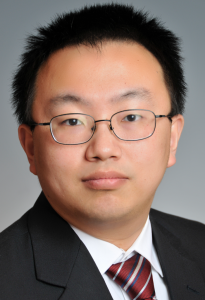IACMR Research Seminar Series Session #8
Best Not to Know: Pay Secrecy, Employee Voluntary Turnover, and the Conditioning Effect of Distributive Justice
Speaker: Mo Wang, Warrington College of Business at University of Florida
When:9:00- 10:15 am, January 27, 2021 (China Time)
Language:English
Where: Zoom
Abstract
Building on uncertainty management theory, we develop and test a model explicating how and when secrecy in pay communication may affect employee turnover-related outcomes (i.e., employee turnover intentions and firm voluntary turnover rates). Underlying this model is the notion that employees triangulate perceptions of pay secrecy (i.e., a pay-related procedural justice cue that also reflects uncertainty) with their own or others’ perceptions of distributive justice as a basis for assessing organizational trustworthiness, with the latter serving as an important driver of voluntary turnover intentions and behavior. Results of two studies (Study 1 at the individual level and Study 2 at the firm level) indicate that rather than being universal, the relationship between pay secrecy and turnover is contingent upon perceptions of distributive justice, with turnover intentions (at the individual level via organizational trustworthiness) and voluntary turnover rates (at the firm level) differentially affected by pay secrecy under conditions of higher and lower levels of distributive justice. These findings suggest an important extension to organizational justice theories, namely that when procedural justice cues are confounded with uncertainty (as they are with pay secrecy), the assumed compounding interaction between procedural and distributive justice cues may be replaced by a more antagonistic interaction.
Bio of Dr. Mo Wang

Dr. Mo Wang is the Lanzillotti-McKethan Eminent Scholar Chair at the Warrington College of Business at University of Florida. He is also the Department Chair of the Management Department, as well as the Director of Human Resource Research Center at University of Florida. He specializes in research areas of retirement and older worker employment, occupational health psychology, expatriate and newcomer adjustment, leadership and team processes, and advanced quantitative methodologies. He received Academy of Management HR Division Scholarly Achievement Award (2008), Careers Division Best Paper Award (2009), European Commission’s Erasmus Mundus Scholarship for Work, Organizational, and Personnel Psychology (2009), Emerald Group’s Outstanding Author Contribution Awards (2013 and 2014), Society for Industrial-Organizational Psychology’s William A. Owens Scholarly Achievement Award (2016), and Journal of Management Scholarly Impact Award (2017) for his research in these areas. He also received Cummings Scholarly Achievement Award from Academy of Management’s OB Division (2017), Early Career Contribution/Achievement Awards from American Psychological Association (2013), Federation of Associations in Behavioral and Brain Sciences (2013), Society for Industrial-Organizational Psychology (2012), Academy of Management’s HR Division (2011) and Research Methods Division (2011), and Society for Occupational Health Psychology (2009). His research has been funded on multiple research projects by National Institute of Health (NIH), National Science Foundation (NSF), Swiss National Science Foundation (SNSF), and Australian Research Council (ARC), totaling to more than 4 million dollars. He was the invited speaker for White House Social and Behavioral Sciences Team twice (2015 and 2016) and conducted a Congressional Debriefing on Retirement for U.S. Congress in 2015. He was the Editor of Oxford Handbook of Retirement and an Associate Editor for Journal of Applied Psychology and currently serves as the Editor-in-Chief for Work, Aging and Retirement. He also serves on numerous academic journal’s editorial boards. He is a Fellow of APA, APS, and SIOP. Dr. Wang was the President of Society for Occupational Health Psychology (2014-2015) and the Director for the Science of Organizations Program at National Science Foundation (2014-2016).
